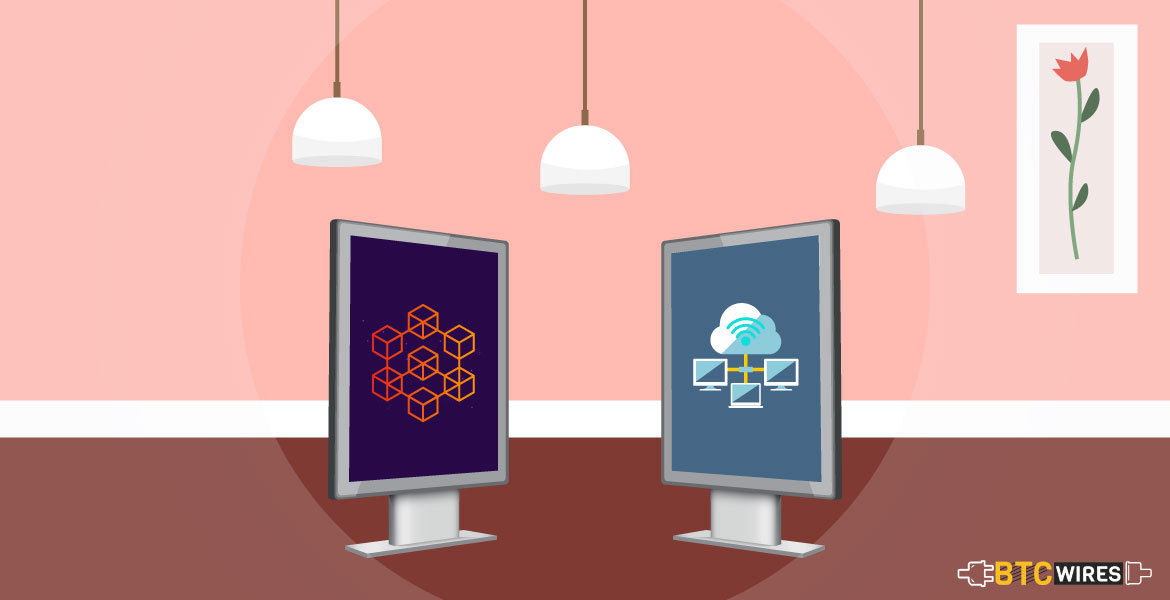Even you thought that both Blockchain and database are same,

Even you thought that both Blockchain and database are same, right?
A lot of people are confused between the two, not knowing that they are two different things.
Indeed, a blockchain is a form of a database, the distributed one.
Let’s not keep the inquisitiveness alive and highlight the difference and similarities between a database and a blockchain.
You May Also Read: Can Blockchain Technology be Hacked?
What Is A Blockchain?
It is a distributed ledger technology that the world hadn’t seen before it got introduced by Satoshi Nakamoto through the creation of Bitcoin in 2009.
It is so because adding something to blockchain needs a lot of work to be done.
For instance, in the case of Bitcoin blockchain, blocks are added to the chain in every 10 minutes by the miners with cryptographic proofs and timestamps.
But let’s not forget the fact that this process makes blockchain very slow.
The cryptographic proofs and timestamps along with Proof of Work makes sure that no one can edit the data without putting in some work.
Furthermore, adding transactions with timestamp creates an immutable history that can be verified anyone. The provenance of digital records, through a blockchain, becomes easy and transparent.
Like Bitcoin Blockchain, one can easily see when a digital record was created, ownership of the records with timestamps, as well as its present status.
This type of distributed ledger or database can turn out to be extremely helpful between the parties that don’t trust each other and still willing to transact with one another in a fair and non-centralized way.
Lastly, anyone can write digital records in the blockchain architecture.
You May Also Read: Top 10 Web Wallets For Cryptocurrencies in 2019
What Is A Database?
A Database is a sort of central ledger where you trust the administrator to manage it well. Indeed, the database administrator offers rights to read or write, different from blockchain where anyone can do so by doing the some significant work in a correct way.
But like blockchain, modern databases has the ability to store history as well as different versions of data with the help of an entity that is centralization-focused.
And because a database is centralized in nature, its maintenance is easy and output is high. However, this brings in the loopholes of trusting a centralized entity which can compromise the entire data and can even change the ownership of the records, when corrupted.
Not only this, there is no need to keep all the previous version of the ledger since we all trust the centralized authority by default. They should act fair, which is far from the reality in the real world.
In such a sort of system, it becomes easy to pirate the digital records and hence can’t solve the problems like double spending, as we have seen in the case of bitcoin double spending.
Here are a Few Articles for you to Read Next:
